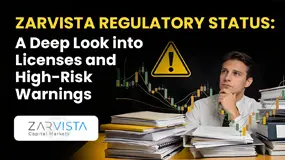Abstract:In a speech on Saturday, ECB vice-president Luis de Guindos stated that the ECB is monitoring risks across the financial sector in order to maintain stability in the euro area.

03 April 2023
• In a speech on Saturday, ECB vice-president Luis de Guindos stated that the ECB is monitoring risks across the financial sector in order to maintain stability in the euro area. While de Guindos reassured that the established banking sector in the single currency zone has strong capital and liquidity positions, he cautioned about bigger dangers in the system.
• Although a key measure of inflation in the US decreased in February, it remains uncertain whether this is enough progress for Federal Reserve policymakers to end their year-long campaign to raise interest rates.
• On Sunday, Saudi Arabia and other OPEC+ oil producers announced a surprise move to further cut oil output by approximately 1.16 million barrels per day. Analysts predict that this decision will lead to an immediate increase in oil prices, while the United States has deemed it unwise.
• The effects of the War on Ukraine, sparked by the invasion of Russian forces, continue to impact the Eurozone as well as the USA and other related countries, as inflation rates remain high. Despite Russia‘s war crimes in Ukraine and China’s military actions towards Taiwan, among other factors, some analysts are echoing Ray Dalios predictions about a shift in global power.
Indices
During the quarter, the technology-heavy Nasdaq Composite increased by over 16%, whereas the S&P 500 Index, which represents the broad market, only rose by around 7%. However, the large-cap Dow Jones Industrial Average, which has a narrow focus, experienced only a slight increase. Despite a calm week due to less macroeconomic data, the indices still reported significant gains, indicating another bullish market.
As concerns about financial instability lessened, shares in Europe saw a rally. The pan-European STOXX Europe 600 Index ended up 4.03% higher in local currency terms. Major stock indices, such as Germany‘s DAX, which rose by 4.49%, and the Swiss Market Index (SMI), which gained 4.41%, also reported strong gains. The UK’s FTSE 100 Index increased by 3.06%.
Forex
The Dollar Index confirmed on Friday that it was on track for a third consecutive weekly decline, with a decrease of over 2% in March. This was due to the investors being spooked by the Feds rate-tightening cycle coming to an end. The latest CPI report indicated that Eurozone inflation slowed down in March, reaching an over-year low of 6.9%, as energy prices dropped for the first time in two years. However, the core index accelerated to a fresh all-time high of 5.7%. Despite the recent banking turmoil and the risk of recession, ECB President Lagarde stated earlier this month that the central bank is determined to get inflation back on target, without making any “trade-offs.”
The Japanese Yen saw a significant decline in its value last week, indicating a shift away from being a safe-haven currency. The sharp increase in US indices supports the idea that investors are withdrawing from safe-haven currencies and instead investing in the growth of the US equities market.
Macro
According to a preliminary estimate, annual consumer price growth in the euro area decelerated to 6.9% in March from 8.5% in February as energy costs declined. This result fell below the consensus forecast of 7.1%. However, the core rate that excludes volatile food and energy prices rose slightly to 5.7% from 5.6% in February. In February, the unemployment rate remained stable at 6.6%.
BoE Governor Andrew Bailey affirmed in a speech that recent banking industry issues would not divert the central banks attention from inflation. While he acknowledged “big strains” in the global banking system, he noted that UK lenders were resilient and capable of supporting the economy.
The U.S. core (excluding food and energy) personal consumption expenditure (PCE) price index for February came in at 4.6%, surpassing the consensus estimate of 4.7%. The core PCE is the Federal Reserve‘s preferred measure of inflation. Although the February 2023 reading fell below the recent high of 5.4% recorded in February 2022, it still exceeds the Fed’s 2% long-term inflation target.
In the last quarter of 2022, the American economy grew at an annualised rate of 2.6%, slightly lower than the initial estimates of a 2.7% increase. Consumer spending increased by 1%, down from 1.4% in the second estimate, as spending on services grew much less than previously estimated (1.6% vs. 2.4%).
What to watch out for this week
• Switzerland will be releasing inflation data and the US will be publishing ISM purchasing managers surveys for the manufacturing sector on Monday, followed by the service sector data on Wednesday.
• Several trade balance reports, which are important indicators of the overall economic health, will be published throughout the week. Germanys Balance of Trade report will be released on Tuesday, followed by reports from Canada and the US on Wednesday, and Australia on Thursday.
• In addition, the economic calendar includes reports on February job openings on Tuesday and the private sector hiring data for March on Wednesday, ahead of Fridays highly anticipated non-farm payrolls report in the US as the labour market in the US has remained strong in the face of multiple rate hikes by the Federal Reserve over the past year.










